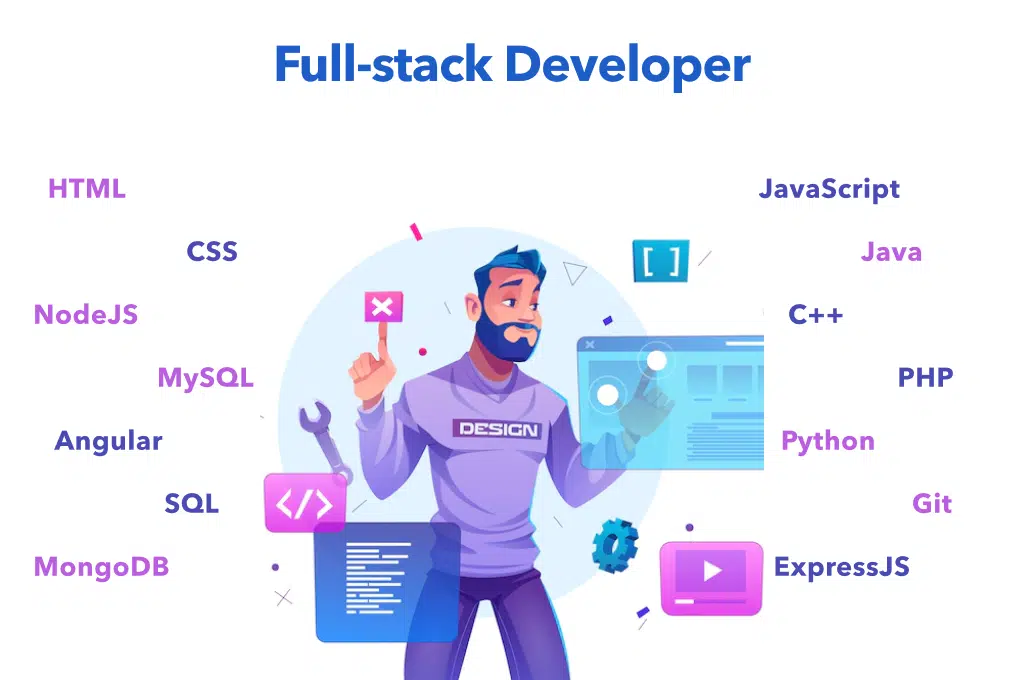5 Best Remote .NET Developer Jobs You Can Choose in 2024
Are you a .NET developer who wants to work remotely? If so, you are not alone. According to a recent survey, 74% of .NET developers prefer remote work over office work. Remote work offers many benefits, such as flexibility, autonomy, diversity, and income potential. However, finding remote .NET developer jobs can be challenging, especially if you don’t know where to look and what to expect.
In this article, we will provide you with a list of the 5 best remote .NET developer jobs that are in high demand and offer attractive compensation and perks. We will also give you some tips and best practices for finding and applying for remote .NET developer jobs. By the end of this article, you will have a clear idea of how to become a successful remote .NET developer in 2024. So, let’s get started!

How to Find Remote .NET Developer Jobs
You can find remote .NET developer jobs in different ways. Here are some of the most common and effective methods, and some tips and best practices for each one:
Online Platforms
- Online platforms are websites or apps that offer remote .NET developer jobs from different companies and organizations.
- You can browse and apply for various remote .NET developer jobs on online platforms, and filter your search by location, salary, experience, skills, and more.
- Some online platforms also provide reviews, ratings, and feedback from other remote .NET developers who have worked for the same employers. This can help you get a better insight into the work culture, expectations, and challenges of the remote .NET developer jobs.
- Some examples of reputable and reliable online platforms that offer remote .NET developer jobs are:
- Stack Overflow, a popular online community and platform for programmers and developers.
- Remote.co, a dedicated online platform for remote workers and employers.
- We Work Remotely, a leading online platform for remote jobs and careers.
Networking
- Networking is the process of building relationships and connections with potential employers, clients, and colleagues.
- You can network with other remote .NET developers by joining online communities, forums, groups, and events, where you can learn new skills, share your knowledge, showcase your portfolio, and discover new opportunities for remote .NET developer jobs.
- You can also network with other professionals and experts in your field by attending webinars, podcasts, workshops, and conferences, where you can get updated on the latest trends and technologies, and exchange ideas and insights with your peers and mentors.
- Some examples of online communities, forums, groups, and events that you can join for networking are:
- DotNetRocks, a popular online podcast and community for .NET developers.
- C# Corner, a leading online platform and community for C# and .NET developers.
- .NET Conf, a free online conference and event for .NET developers.
Referrals
- Referrals are recommendations and endorsements from someone who knows you and your work.
- You can get referrals from your existing or previous employers, clients, colleagues, friends, or family members who have connections or contacts with remote .NET developer jobs.
- You can also ask for referrals from your network, such as the online platforms and communities that you are part of.
- Referrals can help you increase your credibility, visibility, and trustworthiness, and increase your chances of getting hired for remote .NET developer jobs.
Social Media
- Social media are online platforms and apps that allow you to create and share content and interact with other users.
- You can use social media platforms to promote yourself and your work to a wider audience, and to attract more attention and interest for remote .NET developer jobs.
- You can use social media platforms to create and update your profile, portfolio, resume, and blog, where you can showcase your skills, projects, achievements, and insights.
- You can also use social media platforms to follow and interact with other remote .NET developers, employers, clients, and influencers, where you can get inspired, informed, and connected.
- Some examples of social media platforms that you can use for finding remote .NET developer jobs are:
- LinkedIn, a professional online network and platform for career and business.
- Twitter, a popular online platform and app for microblogging and social networking.
- Facebook, a widely used online platform and app for social networking and media.
5 Best Remote .NET Developer Jobs in 2024
Now that you know how to find remote .NET developer jobs, let’s take a look at the 5 best ones you can choose in 2024. These are the remote .NET developer jobs that are in high demand and offer attractive compensation and perks. For each job, we will provide you with some information, such as the average salary range, the typical responsibilities and tasks, the required and preferred skills and qualifications, the pros and cons, and some examples of companies or organizations that hire remote .NET developers for the job.
1. .NET Web Developer

A remote .NET web developer is adept at developing and maintaining web applications utilizing .NET technologies like ASP.NET, C#, and MVC. They play a crucial role in designing user-friendly, responsive, and secure web pages and interfaces, leveraging HTML, CSS, JavaScript, and other web technologies. Additionally, the .NET web developer ensures the efficient functioning of web applications through thorough testing, debugging, and optimization, using tools and frameworks such as Visual Studio, Selenium, and NUnit.
The average salary range for a remote .NET web developer is $50,000 to $100,000 per year, depending on the experience, location, and skills of the remote .NET web developer. The required and preferred skills and qualifications for a remote .NET web developer are:
- Proficient in .NET technologies, such as ASP.NET, C#, and MVC.
- Familiar with web technologies, such as HTML, CSS, JavaScript, and jQuery.
- Knowledgeable of web development tools and frameworks, such as Visual Studio, Bootstrap, and Angular.
- Experienced in web testing and debugging tools and frameworks, such as Selenium, NUnit, and Chrome DevTools.
- Skilled in web security and performance optimization techniques, such as SSL, encryption, caching, and compression.
- Able to work independently and collaboratively, using agile methodologies, such as Scrum and Kanban.
- Good communication and problem-solving skills.
The Pros and Cons
- Pros:
- High demand and growth potential, as web development is one of the most popular and dynamic fields in the IT industry.
- Creative and challenging work, as web development involves designing and developing web applications that meet the needs and expectations of the users and clients.
- Flexible and diverse work, as web development allows you to work on various types of web applications, such as e-commerce, social media, gaming, and education.
- Cons:
- Competitive and demanding work, as web development requires you to keep up with the latest trends and technologies, and to deliver high-quality and timely web applications.
- Complex and tedious work, as web development involves dealing with various web technologies, tools, frameworks, and standards, and to troubleshoot and fix web issues and errors.
- Isolated and stressful work, as web development can make you feel lonely and overwhelmed, especially if you work remotely and have to manage your time, tasks, and communication.
2. .NET Software Engineer
A .NET software engineer is a remote .NET developer who designs and implements software solutions using .NET technologies, such as .NET Core, .NET 5, and Azure. A .NET software engineer is responsible for creating software applications and systems that meet the requirements and specifications of the users and clients, using various programming languages, such as C#, VB.NET, and F#. A .NET software engineer is also responsible for testing, debugging, and documenting software solutions, using various tools and frameworks, such as Visual Studio Code, Git, and Swagger.
The average salary range for a remote .NET software engineer is $60,000 to $120,000 per year, depending on the experience, location, and skills of the remote .NET software engineer. The required and preferred skills and qualifications for a remote .NET software engineer are:
- Proficient in .NET technologies, such as .NET Core, .NET 5, and Azure.
- Familiar with programming languages, such as C#, VB.NET, and F#.
- Knowledgeable of software development tools and frameworks, such as Visual Studio Code, Git, and Swagger.
- Experienced in software testing and debugging tools and frameworks, such as xUnit, Moq, and Postman.
- Skilled in software design and architecture principles and patterns, such as SOLID, MVC, and DDD.
- Able to work independently and collaboratively, using agile methodologies, such as Scrum and Kanban.
- Good communication and problem-solving skills.
The Pros and Cons
- Pros:
- High demand and growth potential, as software engineering is one of the most essential and innovative fields in the IT industry.
- Rewarding and fulfilling work, as software engineering involves creating software solutions that solve real-world problems and add value to the users and clients.
- Flexible and diverse work, as software engineering allows you to work on various types of software solutions, such as desktop, mobile, web, and cloud.
- Cons:
- Competitive and demanding work, as software engineering requires you to have a strong technical background and skills, and to deliver high-quality and timely software solutions.
- Complex and tedious work, as software engineering involves dealing with various software technologies, tools, frameworks, and standards, and to troubleshoot and fix software issues and errors.
- Isolated and stressful work, as software engineering can make you feel lonely and overwhelmed, especially if you work remotely and have to manage your time, tasks, and communication.
3. .NET Full Stack Developer

A .NET full stack developer is a remote .NET developer who works on both the front-end and back-end of web applications using .NET technologies, such as Blazor, Razor, and Entity Framework. A .NET full stack developer is responsible for creating and integrating the user interface, business logic, and data access layers of web applications, using various web technologies, such as HTML, CSS, JavaScript, C#, and SQL. A .NET full stack developer is also responsible for testing, debugging, and deploying web applications, using various tools and frameworks, such as Visual Studio, Azure, and Docker.
The average salary range for a remote .NET full stack developer is $70,000 to $130,000 per year, depending on the experience, location, and skills of the remote .NET full stack developer. The required and preferred skills and qualifications for a remote .NET full stack developer are:
- Proficient in .NET technologies, such as Blazor, Razor, and Entity Framework.
- Familiar with web technologies, such as HTML, CSS, JavaScript, and jQuery.
- Knowledgeable of web development tools and frameworks, such as Visual Studio, Azure, and Docker.
- Experienced in web testing and debugging tools and frameworks, such as Selenium, NUnit, and Chrome DevTools.
- Skilled in web design and development principles and patterns, such as responsive design, RESTful API, and MVC.
- Able to work independently and collaboratively, using agile methodologies, such as Scrum and Kanban.
- Good communication and problem-solving skills.
The Pros and Cons
- Pros:
- High demand and growth potential, as full stack development is one of the most sought-after and versatile fields in the IT industry.
- Rewarding and fulfilling work, as full stack development involves creating and integrating web applications that provide a complete and seamless user experience.
- Flexible and diverse work, as full stack development allows you to work on various aspects and layers of web applications, such as front-end, back-end, and database.
- Cons:
- Competitive and demanding work, as full stack development requires you to have a broad and deep knowledge and skills of web technologies, tools, frameworks, and standards, and to deliver high-quality and timely web applications.
- Complex and tedious work, as full stack development involves dealing with various web technologies, tools, frameworks, and standards, and to troubleshoot and fix web issues and errors.
- Isolated and stressful work, as full stack development can make you feel lonely and overwhelmed, especially if you work remotely and have to manage your time, tasks, and communication.
4. .NET Mobile Developer
A .NET mobile developer is a remote .NET developer who creates and optimizes mobile applications using .NET technologies, such as Xamarin, MAUI, and Uno. A .NET mobile developer is responsible for creating user-friendly, responsive, and secure mobile apps and interfaces, using various mobile technologies, such as Android, iOS, and Windows. A .NET mobile developer is also responsible for testing, debugging, and deploying mobile apps, using various tools and frameworks, such as Visual Studio, App Center, and Firebase.
The average salary range for a remote .NET mobile developer is $80,000 to $140,000 per year, depending on the experience, location, and skills of the remote .NET mobile developer. The required and preferred skills and qualifications for a remote .NET mobile developer are:
- Proficient in .NET technologies, such as Xamarin, MAUI, and Uno.
- Familiar with mobile technologies, such as Android, iOS, and Windows.
- Knowledgeable of mobile development tools and frameworks, such as Visual Studio, App Center, and Firebase.
- Experienced in mobile testing and debugging tools and frameworks, such as Espresso, XCTest, and Android Studio.
- Skilled in mobile design and development principles and patterns, such as Material Design, Human Interface Guidelines, and MVVM.
- Able to work independently and collaboratively, using agile methodologies, such as Scrum and Kanban.
- Good communication and problem-solving skills.
The Pros and Cons
- Pros:
- High demand and growth potential, as mobile development is one of the most booming and diverse fields in the IT industry.
- Rewarding and fulfilling work, as mobile development involves creating mobile apps that provide a convenient and enjoyable user experience.
- Flexible and diverse work, as mobile development allows you to work on various types of mobile apps, such as gaming, social media, education, and health.
- Cons:
- Competitive and demanding work, as mobile development requires you to have a strong technical background and skills, and to deliver high-quality and timely mobile apps.
- Complex and tedious work, as mobile development involves dealing with various mobile technologies, tools, frameworks, and standards, and to troubleshoot and fix mobile issues and errors.
- Isolated and stressful work, as mobile development can make you feel lonely and overwhelmed, especially if you work remotely and have to manage your time, tasks, and communication.
5. .NET Desktop Developer
A remote .NET desktop developer specializes in crafting and refining desktop applications with .NET technologies, including WPF, WinForms, and UWP. This role is key in developing intuitive, responsive, and secure desktop applications and interfaces for Windows, Linux, and Mac platforms. Furthermore, the .NET desktop developer is responsible for the critical tasks of testing, troubleshooting, and deploying desktop applications, utilizing tools and frameworks like Visual Studio, NuGet, and ClickOnce.
The average salary range for a remote .NET desktop developer is $60,000 to $120,000 per year, depending on the experience, location, and skills of the remote .NET desktop developer. The required and preferred skills and qualifications for a remote .NET desktop developer are:
- Proficient in .NET technologies, such as WPF, WinForms, and UWP.
- Familiar with desktop technologies, such as Windows, Linux, and Mac.
- Knowledgeable of desktop development tools and frameworks, such as Visual Studio, NuGet, and ClickOnce.
- Experienced in desktop testing and debugging tools and frameworks, such as NUnit, Moq, and Visual Studio Debugger.
- Skilled in desktop design and development principles and patterns, such as MVVM, MVP, and MEF.
- Able to work independently and collaboratively, using agile methodologies, such as Scrum and Kanban.
- Good communication and problem-solving skills.
The Pros and Cons
- Pros:
- High demand and growth potential, as desktop development is one of the most stable and traditional fields in the IT industry.
- Rewarding and fulfilling work, as desktop development involves creating desktop apps that provide a rich and powerful user experience.
- Flexible and diverse work, as desktop development allows you to work on various types of desktop apps, such as productivity, entertainment, education, and health.
- Cons:
- Competitive and demanding work, as desktop development requires you to have a strong technical background and skills, and to deliver high-quality and timely desktop apps.
- Complex and tedious work, as desktop development involves dealing with various desktop technologies, tools, frameworks, and standards, and to troubleshoot and fix desktop issues and errors.
- Isolated and stressful work, as desktop development can make you feel lonely and overwhelmed, especially if you work remotely and have to manage your time, tasks, and communication.
Conclusion
You have just learned about the 5 best remote .NET developer jobs that you can choose in 2024. These roles will test your abilities, increase your earning potential, and broaden your career prospects. Whether you want to work on web, mobile, or desktop, there is a remote .NET developer job for you. All you need to do is to start applying for these jobs on online platforms, network with other remote .NET developers and professionals, get referrals from your contacts, and use social media to showcase your work.
To stay updated with .NET development, feel free to reach out to us. OnextDigital, a leader in services like web development, UX/UI design, and white label software, boasts a team of proficient .NET developers. We deliver top-notch, timely .NET development solutions at competitive rates. Trust us as your partner in .NET development.




